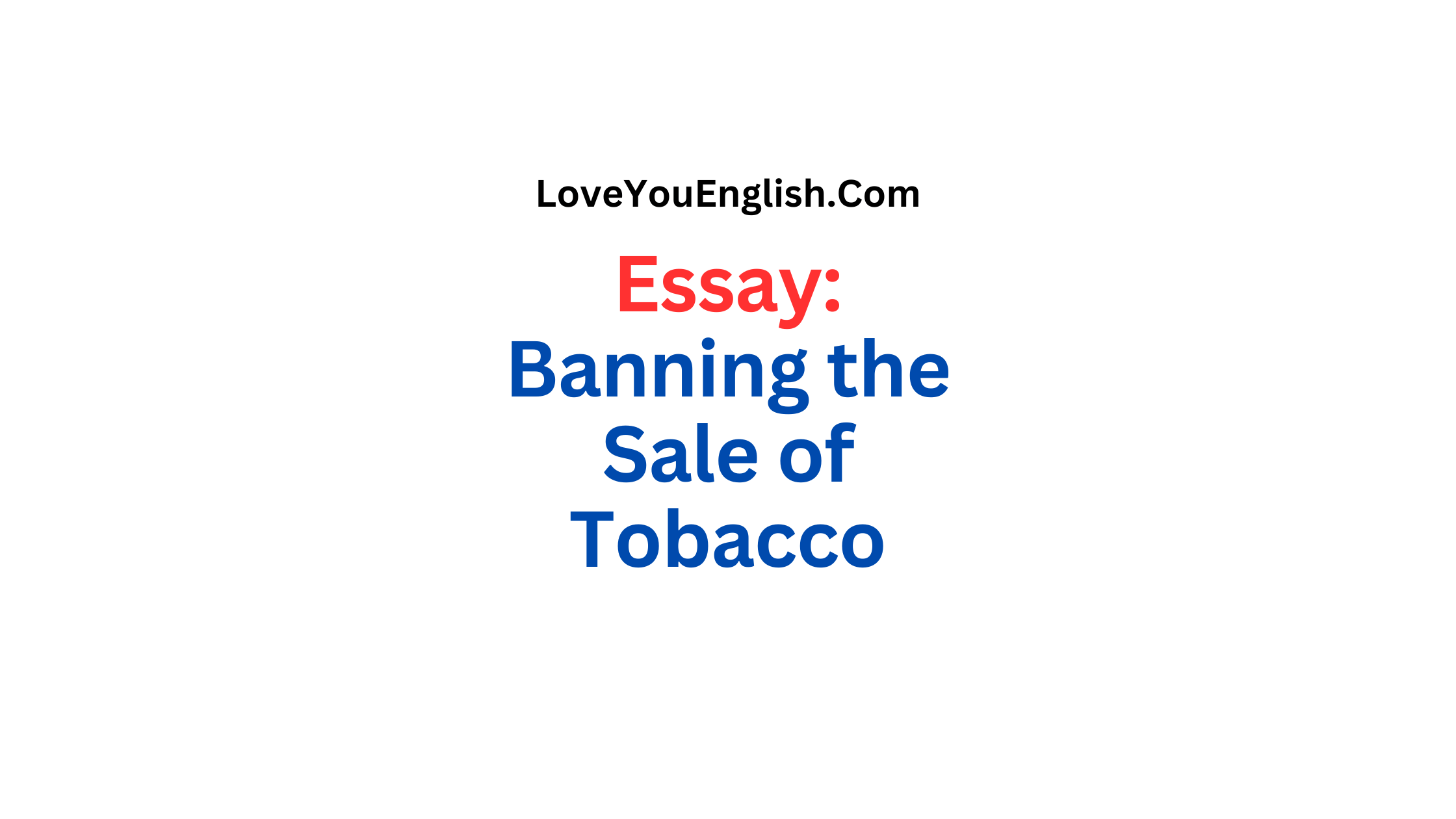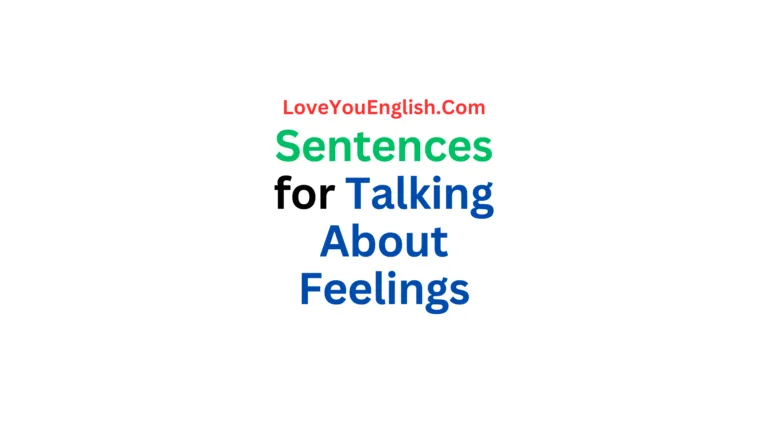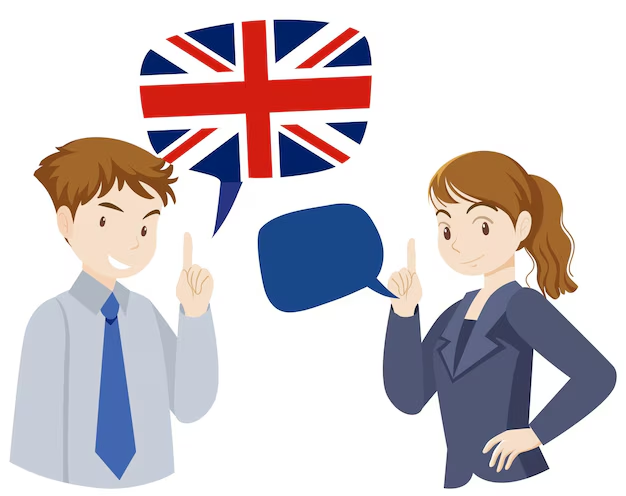Essay About Banning the Sale of Tobacco
Banning the Sale of Tobacco
Tobacco use is still one of the top reasons for preventable diseases and deaths around the globe.
Even after many years of health campaigns and growing awareness about its dangers, millions of people still smoke cigarettes and use other tobacco products, leading to serious health issues for both individuals and the community.
Because of the huge impact tobacco has on society, there is a strong case for completely banning the sale of tobacco products.
Although this idea would face many challenges and opposition, the potential benefits, like saving lives and reducing healthcare costs, make it worth thinking about.
The argument for banning tobacco sales is mainly based on the shocking public health effects of smoking.
The World Health Organization reports that tobacco use causes over 8 million deaths each year.
In the U.S., cigarette smoking leads to more than 480,000 deaths each year, including over 41,000 deaths from secondhand smoke.
Smoking is linked to various health issues, such as cancer, heart disease, stroke, lung diseases, diabetes, and chronic obstructive pulmonary disease (COPD).
It also raises the risk of tuberculosis, certain eye diseases, and immune system problems.
In addition to the huge human cost, tobacco use also brings significant economic burdens to society.
The healthcare costs and lost productivity from smoking-related illnesses add up to hundreds of billions of dollars every year.
In the U.S., smoking-related health issues cost more than $300 billion annually, which includes nearly $170 billion for direct medical care for adults and $156 billion in lost productivity.
More essays:
- Essay About Corruption: A Pervasive Threat to Society
- Essay About Myself for Working Professional
- Essay on Impact of Cinema in Life for Students and Children
These expenses affect not just smokers but everyone in society through higher insurance rates and taxpayer-funded health programs.
People who support banning tobacco sales believe that no other product is as harmful or deadly when used as it is meant to be.
Cigarettes are made to keep people addicted to nicotine, which makes it really hard for smokers to stop, even if they want to.
The tobacco industry has a history of misleading advertising, downplaying the dangers of smoking, and targeting young people to create new smokers.
Because of this, many health experts think that allowing tobacco sales to continue is not right.
If tobacco sales were banned, it could lead to a big drop in smoking rates and related health issues over time.
While some committed smokers might look for illegal ways to get cigarettes, many would probably quit or never start smoking if cigarettes weren’t easy to find.
Young people would have a tougher time starting to smoke, which could save millions of lives in the future.
Plus, smoking would become less accepted in society, which would help reduce tobacco use.
There are different ways to put a tobacco sales ban into action. One idea is to slowly reduce sales over several years, giving current smokers a chance to quit and making the change easier.
Another idea is to create a “tobacco-free generation” rule, where selling tobacco to anyone born after a certain year would be illegal.
This would gradually eliminate smoking without taking cigarettes away from adult smokers right away.
Some people who oppose tobacco bans believe that making cigarettes illegal could actually make things worse.
They think it might create a big black market where criminals sell cigarettes, which could be more dangerous because there wouldn’t be any quality checks.
They also worry that governments would lose money from taxes on legal cigarette sales.
Additionally, there are concerns about taking away personal freedoms and the rights of adults to choose whether or not to use tobacco.
On the other hand, supporters of the ban argue that the health benefits for the public would be much greater than these possible issues.
They mention that banning other harmful substances has worked in the past to reduce their use, and that a well-planned policy could help avoid many problems.
They believe that any lost tax money would be more than made up for by lower healthcare costs and better productivity.
Regarding personal freedom, they argue that nicotine addiction and the way tobacco companies market their products actually limit real choices, so it’s the government’s responsibility to protect public health.
It’s interesting to see that some countries are already taking steps toward banning tobacco sales.
For example, New Zealand passed a law in 2022 to gradually increase the legal smoking age, aiming for a generation that doesn’t smoke at all.
Bhutan completely banned tobacco sales in 2004, although they later changed that rule a bit.
While these cases are still uncommon, they show that banning tobacco sales is a real option that some governments are considering.
Banning tobacco sales would definitely run into a lot of political and practical problems.
The tobacco industry has a lot of power and influence in many countries, so they would fight hard against any bans.
Plus, many governments depend on the money they make from tobacco taxes and might not want to lose that income.
Some people might also push back, thinking that the government is overstepping its bounds.
On the bright side, more people are supporting stronger tobacco control as they learn more about the health risks.
Policies that seemed extreme in the past, like smoking bans in public areas, are now accepted in many places.
A slow and steady approach to reducing tobacco sales, along with strong public education and help for those trying to quit, could help gain more support for stricter bans.
One example of a successful ban is how many countries have dealt with asbestos.
It was once commonly used in buildings and factories, but now over 50 countries have banned it because of its serious health dangers.
Even though there was pushback from the industry, these bans have mostly worked in lowering exposure and related illnesses.
The main difference is that asbestos was mainly a workplace danger, while tobacco is a product that many people are addicted to.
Still, the asbestos situation shows that it is possible to ban something that was once widely used when the health risks become too clear to ignore.
People who oppose tobacco bans often say that these laws take away personal freedom and the right to choose.
But this view overlooks how addictive nicotine is and that many smokers start using tobacco when they are teenagers, not fully understanding the long-term effects.
Additionally, the choice to smoke can lead to serious costs for society, like secondhand smoke exposure, high healthcare costs, and decreased productivity.
So, when we look at it this way, banning tobacco sales can actually protect freedom by helping people avoid addiction and promoting healthier communities.
Another point often raised against banning tobacco sales is the fear of increased illegal trade.
While this is a valid worry, countries with strong tobacco control laws show that it can be handled effectively.
For example, Australia has some of the highest cigarette prices and strict packaging rules, but it hasn’t experienced a significant rise in the black market.
By enforcing these laws and providing education and support for quitting smoking, we can reduce illegal trade while still working towards better public health.
We should also think about the wider benefits of ending the tobacco crisis.
Stopping smoking would not only improve health directly but also lead to cleaner air, lower fire hazards, and less harm to the environment from cigarette production and waste.
It would also free up a lot of healthcare resources to tackle other important medical issues.
Workplaces and public areas would become healthier and more enjoyable for everyone.
Banning the sale of tobacco could really help reduce health inequalities.
In many countries, people with lower incomes smoke more than those who are better off, which leads to worse health outcomes for them.
If we get rid of tobacco sales, it could help everyone have a fairer chance at better health.
However, if we decide to ban tobacco, we need to make sure we support people who currently smoke and want to quit.
This support should include free or affordable options for nicotine replacement products, counseling, and other tools to help them stop smoking.
We also need to tackle the reasons why people start smoking, like stress, mental health problems, and peer pressure.
In summary, while stopping tobacco sales might seem extreme, the potential benefits, like saving lives and improving public health, make it a serious option to think about.
Smoking has a huge negative impact on both individuals and society, and considering how addictive nicotine is and the tobacco industry’s past tricks, there are strong reasons to consider a ban.
Even though there would be challenges in making this happen, looking at other successful tobacco control efforts shows that it could work with the right planning and support from the public.
In the end, deciding whether to stop selling tobacco really depends on how much we care about public health compared to business profits and a limited idea of personal freedom.
With all the serious damage tobacco does, it’s getting harder to defend its sale.
If we put a well-planned ban on tobacco sales in place, it could be the first step toward ending one of the biggest health crises ever, leading us to a healthier, smoke-free future.
Read more:
- English Dialogues About Favorite Movies
- English Dialogues About the Future of Artificial Intelligence
- 50 Ways to Start a Conversation with Anyone
- Effective Strategies to Improve Your Communication Skills
- How to Concentrate on Studies- 10 Useful Methods
- English Dialogues About Favorite Podcast






